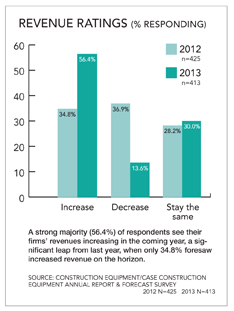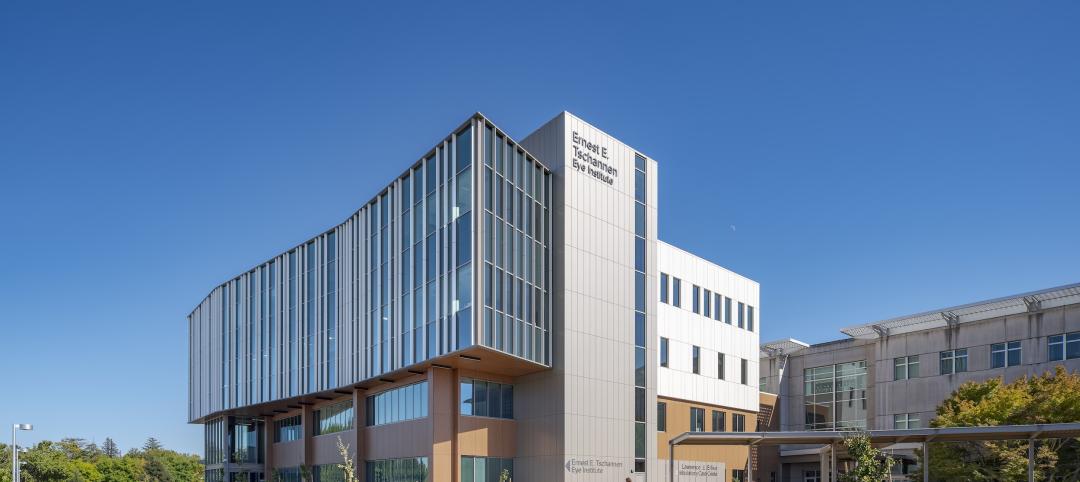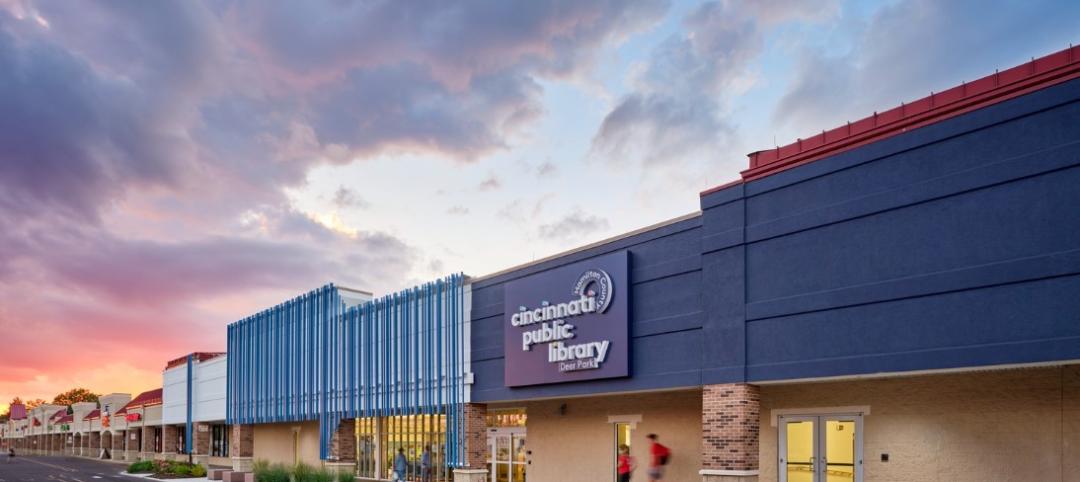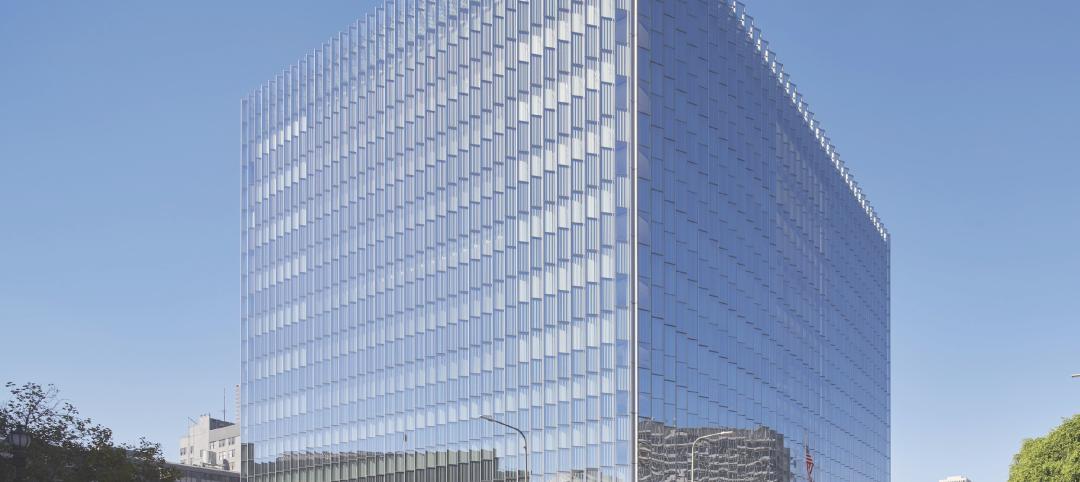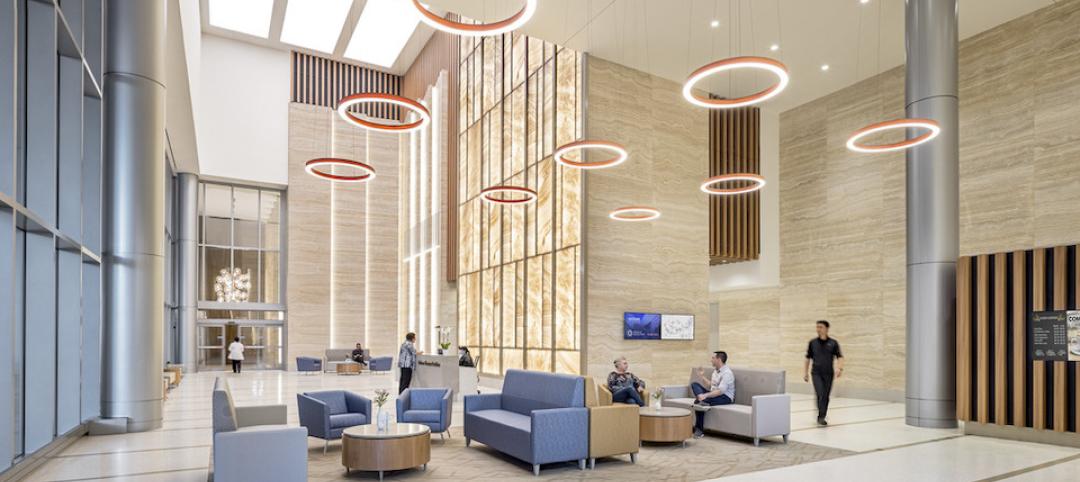Most economists say the U.S. is slowly emerging from the Great Recession, a view that was confirmed to some extent by an exclusive survey of 498 BD+C subscribers whose views we sought on the commercial construction industry’s outlook on business prospects for 2013.
The majority (52.2%) of respondents—architects, engineers, contractors, buildings owners, and others in the commercial, industrial, and institutional field—said their firms were in at least “good” financial health, compared to 49.7% last year.
But a markedly strong showing (86.4%) said their firms would be up in revenues or would at least hold steady in 2013, versus 80.2% last year—an increase that may be not only statistically significant but also most certainly welcome for an industry that could use a bit of cheering.
As was the case last year, more than three-fourths of respondents (75.7%) rated “general economic conditions (i.e., recession)” as the most important concern their firms will face in 2013—roughly comparable to the 78.4% who responded that way last year.
Economy Remains Top Concern for ’13
2013 2012
General economic conditions 75.7% 78.4%
Competition from other firms 44.9% 40.1%
Managing cash flow 37.6% 33.7%
Insufficient capital funding for projects 29.7% 34.5%
Softness in fees/bids 29.7% 28.0%
Government regulations/restrictions 26.6% 23.0%
Price increases (e.g., materials, services)15.7% 18.1%
Avoiding layoffs 16.4% 14.3%
Keeping staff motivated 14.3% 14.3%
Avoiding benefit reductions 11.9% 12.5%
Other factors were largely within the same range as last year, given the margin of error (about 3.5-4%). Competition from other firms (44.9%) went up slightly (from 40.1% in 2011), while having insufficient capital funding for projects declined a bit, to 29.7%, from 34.5% the year before. For both years, nearly three in four (73.4% this year, 74.8% in 2011) described the current business situation for their firms as “very” to “intensely” competitive—further evidence that AEC firms are still struggling for every dollar.
HEALTHCARE, DATA CENTERS LOOK PROMISING FOR ’13
Respondents were asked to rate their firms’ prospects in specific construction sectors on a five-point scale from “excellent” to “very weak.” (Respondents who checked “Not applicable/No opinion/Don’t know” are not counted here.) Among the findings:
- Healthcare continued to be the most highly rated sector, with nearly three-fifths of respondents (58.8%, vs. 54.6% last year) giving it a “good” to “excellent” rating.
- Data centers and mission-critical facilities were also up, with the majority of respondents (52.1%) in the good/excellent category, compared to 45.2% last year
- Senior and assisted-living facilities made a big jump, from last year’s 37.8% of respondents in the good/excellent category, to a majority this year, at 50.5%.
- Government and military work was rated good to excellent by 36.1% of respondents, down slightly from last year’s 41.1%.
- University/college facilities were rated good to excellent by 37.8% of respondents, versus 32.3% in 2011.
- Retail commercial construction got a slight vote of confidence, with nearly one-fifth of respondents (19.9%) stating they thought their firms would have a good to excellent year, nearly double last year’s 11.1%.
- Industrial and warehouse facilities might be staging a comeback: One-fourth (25.5%) of respondents whose firms engaged in that sector said they expect a good to excellent year in 2013; on the other hand, 35.8% said it would be weak or very weak.
Reconstruction—including historic preservation and renovations—accounted for at least 25% of work for more than a third (34.6%) of respondents’ firms, roughly the same as last year (36.3%). Office interiors and fitouts were down, with only 35.7% of this year’s respondents saying this sector would be good to excellent, compared to 42.7% last year.
The prospects for office buildings looked bleak, however, with only 15.6% saying that market would be good to excellent. The majority (55.2%) predicted office buildings would be “weak” or “very weak,” but that’s an improvement from 2011’s 67.3%.
The K-12 sector looked basically flat, with good/excellent responses from 22.9% of respondents this year, compared to 23.2% last year.
As for the use of building information modeling, one-fifth (20.2%) said their firm did not use BIM, about the same as in 2011 (20.6%). Of those who said their firms used BIM, a healthy 26.8% said BIM was used in the majority of projects, based on dollar value—precisely the same as last year. Only a few saw the use of BIM declining in the coming year. Nearly two-fifths (39.0%) of respondents said their companies would be beefing up their investments in technology.
On the communications front, nearly a third of respondents (32.9%) said they did not use social media. Of those who said they did, LinkedIn was the clear choice, at 85.1%, with Facebook in second place (49.5%) and Twitter bringing up the rear (21.1%).
Note: Of the 428 who gave their professional description, 42.1% were architects; 18.7%, engineers; 23.8%, contractors; 5.6% building owners, developers, or facility/property managers; and 9.8%, consultants or “other.” +
Related Stories
Warehouses | Mar 29, 2023
Construction completed on Canada’s first multi-story distribution center
Construction was recently completed on Canada’s first major multi-story industrial project, a distribution center in Burnaby, British Columbia. The project provides infrastructure for last-mile delivery in a world where consumers have come to expect next-day and same-day delivery, according to Ware Malcomb, the project's architect of record.
AEC Innovators | Mar 27, 2023
Leading architecture, engineering firm HED appoints new co-CEOs
As children of immigrant families, Van Herle and Suarez will bring a diverse perspective into a historically underrepresented industry and advance the firm’s mission of creating a positive impact for clients, communities, and the world.
Healthcare Facilities | Mar 26, 2023
UC Davis Health opens new eye institute building for eye care, research, and training
UC Davis Health recently marked the opening of the new Ernest E. Tschannen Eye Institute Building and the expansion of the Ambulatory Care Center (ACC). Located in Sacramento, Calif., the Eye Center provides eye care, vision research, and training for specialists and investigators. With the new building, the Eye Center’s vision scientists can increase capacity for clinical trials by 50%.
Libraries | Mar 26, 2023
An abandoned T.J. Maxx is transformed into a new public library in Cincinnati
What was once an abandoned T.J. Maxx store in a shopping center is now a vibrant, inviting public library. The Cincinnati & Hamilton County Public Library (CHPL) has transformed the ghost store into the new Deer Park Library, designed by GBBN.
Multifamily Housing | Mar 24, 2023
Multifamily developers offering new car-free projects in car-centric cities
Cities in the South and Southwest have eased zoning rules with parking space mandates in recent years to allow developers to build new housing with less parking.
Multifamily Housing | Mar 24, 2023
Coastal multifamily developers, owners expect huge jump in insurance costs
In Texas and Florida, where Hurricane Ian caused $50 billion in damage last year, insurance costs are nearly 50% higher than in 2022.
Multifamily Housing | Mar 24, 2023
Average size of new apartments dropped sharply in 2022
The average size of new apartments in 2022 dropped sharply in 2022, as tracked by RentCafe. Across the U.S., the average new apartment size was 887 sf, down 30 sf from 2021, which was the largest year-over-year decrease.
Government Buildings | Mar 24, 2023
19 federal buildings named GSA Design Awards winners
After a six-year hiatus, the U.S. General Services Administration late last year resumed its esteemed GSA Design Awards program. In all, 19 federal building projects nationwide were honored with 2022 GSA Design Awards, eight with Honor Awards and 11 with Citations.
Transportation & Parking Facilities | Mar 23, 2023
Amsterdam debuts underwater bicycle parking facility that can accommodate over 4,000 bikes
In February, Amsterdam saw the opening of a new underwater bicycle parking facility. Located in the heart of the city—next to Amsterdam Central Station and under the river IJ (Amsterdam’s waterfront)—the facility, dubbed IJboulevard, has parking spots for over 4,000 bicycles, freeing up space on the street.
Healthcare Facilities | Mar 22, 2023
New Jersey’s new surgical tower features state’s first intraoperative MRI system
Hackensack (N.J.) University Medical Center recently opened its 530,000-sf Helena Theurer Pavilion, a nine-story surgical and intensive care tower designed by RSC Architects and Page. The county’s first hospital, Hackensack University Medical Center, a 781-bed nonprofit teaching and research hospital, was founded in 1888.


